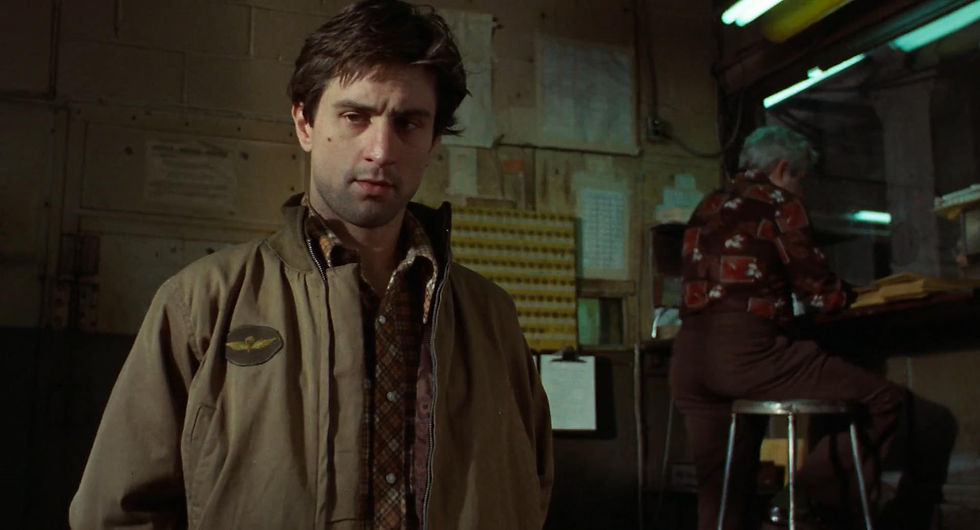Martin Scorsese
- Soames Inscker

- Apr 2, 2025
- 3 min read
Updated: Dec 16, 2025
A Legacy of Cinematic Excellence
Introduction
Martin Scorsese is one of the most influential and celebrated filmmakers in the history of cinema. With a career spanning over five decades, his work has shaped the landscape of modern film making. Known for his intense storytelling, masterful direction, and complex character studies, Scorsese has produced some of the most critically acclaimed films of all time. From Taxi Driver (1976) to Goodfellas (1990) to The Irishman (2019), his filmography is a testament to his unparalleled craftsmanship and enduring impact on the film industry.
Early Life and Career Beginnings
Born on November 17, 1942, in Queens, New York, Martin Scorsese grew up in a devout Italian-American family. He was raised in the neighbourhood of Little Italy, where he developed an early fascination with cinema. Due to his asthma, Scorsese spent much of his childhood watching films rather than playing outside, which sparked his passion for storytelling.
After graduating from New York University’s Tisch School of the Arts, he began making short films, eventually leading to his first feature, Who’s That Knocking at My Door (1967). This film established his collaboration with actor Harvey Keitel and set the stage for the gritty realism that would become his signature.
Breakthrough and 1970s Success
Scorsese’s breakthrough came with Mean Streets (1973), a raw and energetic crime drama that showcased his signature themes: urban violence, Catholic guilt, and redemption. The film was also the beginning of his long and fruitful collaboration with Robert De Niro.
His next film, Taxi Driver (1976), cemented his place in Hollywood. Starring De Niro as the mentally unstable Travis Bickle, the film was a disturbing yet profound exploration of loneliness and urban decay. It won the Palme d’Or at the Cannes Film Festival and remains one of the greatest films ever made.
1980s: Expanding His Range
Scorsese continued to explore crime and violence with Raging Bull (1980), a biographical drama about boxer Jake LaMotta. Featuring an intense, Oscar-winning performance by De Niro, the film was a brutal yet poetic meditation on self-destruction and redemption.
In the mid-80s, Scorsese ventured into dark comedy with The King of Comedy (1982) and experimented with religious themes in The Last Temptation of Christ (1988). Although controversial, these films showcased his willingness to take risks and push cinematic boundaries.
1990s: Defining the Crime Genre
The 1990s saw Scorsese solidify his reputation as the master of the crime genre. Goodfellas (1990), based on the real-life story of mobster Henry Hill, was a kinetic and stylish gangster epic. Its dynamic storytelling, fast-paced editing, and unforgettable performances made it one of the greatest films of all time.
Following this, Scorsese continued exploring crime and corruption with Casino (1995), a film that delves into the glitz and brutality of the Las Vegas underworld. He also ventured into period drama with The Age of Innocence (1993), proving his versatility as a filmmaker.
2000s: Collaboration with Leonardo DiCaprio
In the 2000s, Scorsese formed a new creative partnership with Leonardo DiCaprio, beginning with Gangs of New York (2002), a historical epic about 19th-century gang warfare in New York.
This was followed by The Aviator (2004), a biopic about Howard Hughes, and The Departed (2006), a Boston crime thriller that finally won Scorsese his long-overdue Academy Award for Best Director. His work with DiCaprio continued with Shutter Island (2010) and The Wolf of Wall Street (2013), both of which explored themes of madness, power, and corruption.
2010s-Present: A Legendary Filmmaker Endures
Scorsese’s later films reflect his continued evolution as a filmmaker. Silence (2016) was a deeply spiritual and meditative film about Jesuit priests in 17th-century Japan, while The Irishman (2019) reunited him with De Niro, Al Pacino, and Joe Pesci in an epic reflection on ageing, loyalty, and regret.
His latest film, Killers of the Flower Moon (2023), tackles themes of systemic oppression and greed, proving that Scorsese remains at the forefront of cinematic storytelling.
Themes and Style
Scorsese’s films often explore themes of crime, violence, guilt, redemption, and the American dream. His visual style includes:
Rapid editing and long tracking shots (often in collaboration with editor Thelma Schoonmaker)
Use of popular music to heighten emotion
Complex, morally ambiguous protagonists
Voice-over narration to provide insight into characters’ psyches
Legacy and Influence
Scorsese’s influence extends beyond film making. As a historian and advocate for film preservation, he founded The Film Foundation to restore and protect classic films. His impact on directors such as Quentin Tarantino, Christopher Nolan, and Paul Thomas Anderson is evident in their storytelling and visual techniques.
Conclusion
Martin Scorsese is more than just a filmmaker—he is a cinematic institution. His dedication to storytelling, his ability to push boundaries, and his impact on generations of directors ensure that his legacy will endure for decades to come. Whether through gangster epics, psychological thrillers, or historical dramas, Scorsese continues to redefine what cinema can achieve.



